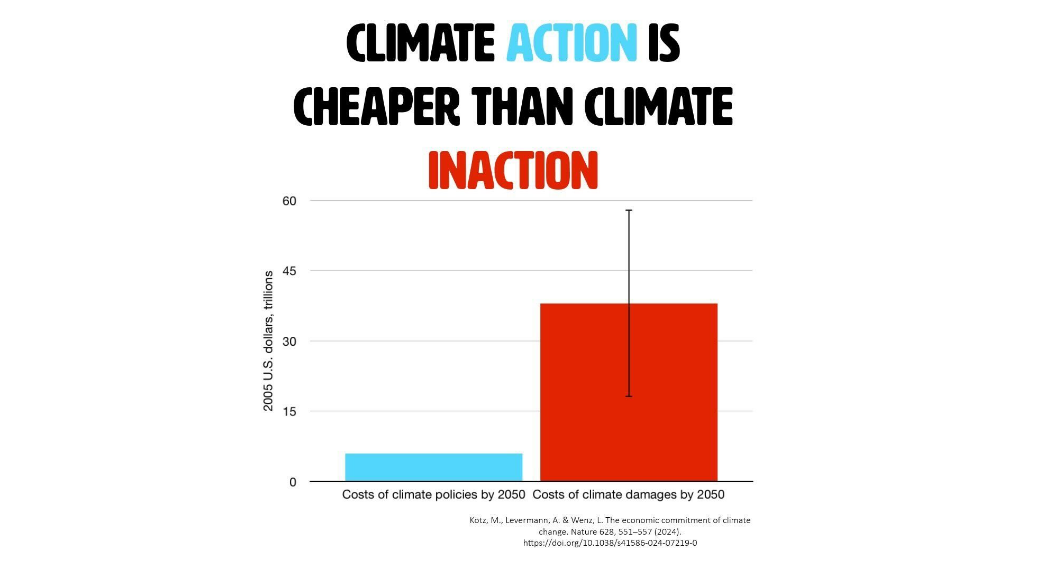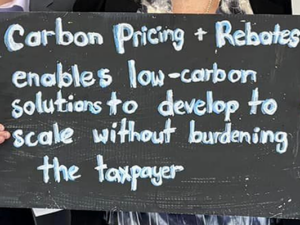By 2050, global annual damages are estimated to be around $38 trillion, with a likely range of $19-59 trillion by 2050. Researchers have found that even with drastic cuts to CO2 emissions starting today, the world economy is already set to lose 19% of its income by 2050 due to climate change. The damages, estimated to be six times larger than the costs of limiting global warming to two degrees, were calculated using empirical data from over 1,600 regions worldwide over the past 40 years. These figures primarily result from rising temperatures and changes in rainfall and temperature variability, and could be even higher when accounting for other weather extremes like storms and wildfires. Climate Change to Cost Global Economy 19% by 2050, Study Finds – ScienceBlog.com 
Climate Action is a Matter of Fiscal Responsibility
If emissions are not drastically and immediately reduced, economic losses could reach up to 60% on global average by 2100, clearly demonstrating that protecting the climate is much cheaper than not doing so.
The study also highlights the considerable inequity of climate impacts, with countries in the tropics suffering the most due to their already warmer climates. The countries least responsible for climate change are predicted to suffer income losses 60% greater than higher-income countries and 40% greater than higher-emission countries, despite having the least resources to adapt to the impacts.
“It is on us to decide: structural change towards a renewable energy system is needed for our security and will save us money. Staying on the path we are currently on, will lead to catastrophic consequences. The temperature of the planet can only be stabilized if we stop burning oil, gas and coal,” says Anders Levermann, Head of Research Department Complexity Science at PIK and co-author of the study.
References
The economic commitment of climate change – Nature











